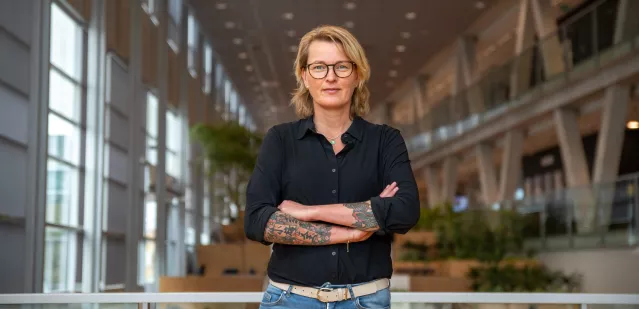
Only if you really need it
Harms is discovering a ‘new’ trend in demarketing. ‘It’s not actually new – it started in the seventies, but it is now making a comeback. The aim is not to sell as much as possible and push consumption, which is the classic aim of marketing, but to put quality and sustainably produced products on the market that will last. They’re saying: only buy what you need.” Demarketing discourages consuming more and encourages consuming less. Harms: “Take the clothing brand G-Star for instance. One of its latest videos shows how a pair of jeans just keeps looking better as the years pass. Their message is that if you want to make a conscious choice for sustainable jeans, they are the brand. With products and content like this, they are trying to bring about positive and sustainable behavioural change.”
Fortunately, other companies are also opting for demarketing. Harms: “Patagonia is leading in this respect. They’re taking that extra step to attain their sustainability goals. The brand doesn’t aim to sell as much clothing or earn as much money as possible but to be as good as possible for the world around us.” Which means, founder Yvon Chouinard has given the company away, so that all profits go to fighting climate change – some 100 million euro a year.
A better world
Encouraging healthier and more sustainable behaviour is a large part of the work carried out by Harms’ professorship. “It’s good that more attention is being paid to the need for behavioural change. We’re all aware of it but that hasn’t yet led to a mass increase in more sustainable behaviour. There’s an attitude-behaviour gap.” And yet three-quarters of the Dutch population are concerned about the effects of climate change. “It’s only when we personally feel the consequences, for instance in our rising gas bills as a result of the war in Ukraine, that we change our behaviour and turn our thermostats down.”
In this respect, we’re facing quite a challenge in society. Policymakers, governments and organisations trying to tackle these challenges or aiming to attain sustainability goals all benefit from advice and support when it comes to effectively using content and media to bring about behavioural change.
Sustainable behavioural change
For NHL Stenden’s professorship of Transformational Media, led by professor of applied sciences Bianca Harms, Black Friday is an interesting research topic. It brings together many of the topics the professorship looks into, such as marketing, communication, media and behaviour. “The questions we handle and investigate concern finding ways of changing behaviour in a positive and sustainable way.”
Policymakers, governments and organisations are coming to Harms’ professorship to find out how content and media can be used for positive behavioural change. Recent successful projects include a media concept to make teens aware of the dangers of vaping and one to raise people’s awareness of the consequences of flushing away medicines. Harms: “With our research, we want to contribute to creating a better region and world.”
Bianca Harms is professor of applied sciences for Transformational Media at NHL Stenden’s Academy of Communication and Creative Business. Transformational media is media that creates an impact, that brings about positive change. The research in the professorship focuses, on the one hand, on practice-based questions concerning how organisations can authentically present their sustainability story and, on the other hand, on how media can be used to positively influence behaviour.



